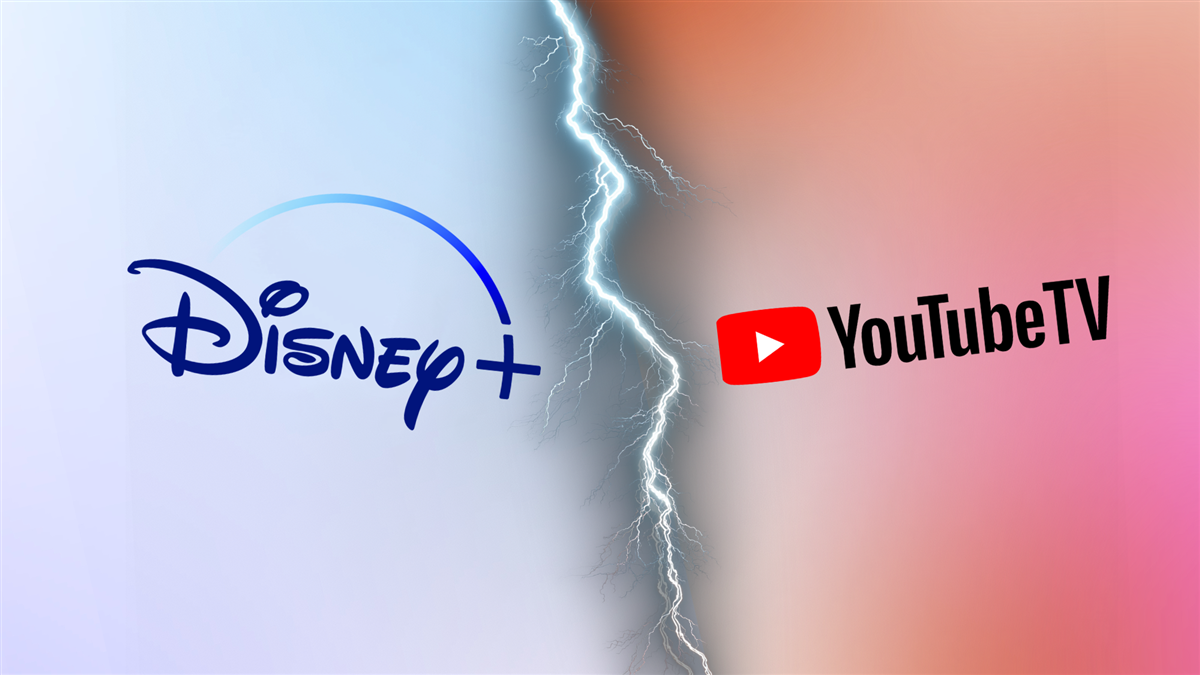Disney Stock Drops—Will Earnings Pave Way for a YouTube TV Truce?

The Walt Disney Company (NYSE: DIS) stock is down nearly 8% in early trading after a mixed earnings report, reflecting a company that is making progress but facing key structural challenges. Strong performance in its theme park business couldn't fully offset the misses in its linear TV business, especially in light of its ongoing carriage dispute with YouTube TV—a standoff that affects the future of live sports streaming.
However, the report could set the stage for Disney to resolve this ongoing dispute, which reportedly costs it between $4 million and $5 million per day in lost affiliate fees and advertising revenue.
While the earnings results reveal improvement in areas like streaming subscriptions and cost control, ESPN’s distribution challenges now loom as a critical factor for investors. The longer the blackout lasts, the more damage is done to Disney’s most valuable media property.
Earnings Show Strength Amid Streaming Challenges
Disney reported quarterly revenue of $22.46 billion. That missed estimates for $22.78 billion and was also lower than the $22.57 billion it recorded in the prior year. However, it beat earnings estimates with adjusted earnings per share (EPS) of $1.11, above forecasts of $1.03, though shy of Q3 2024’s $1.14.
Disney ended the quarter with 132 million Disney+ subscribers and 196 million combined Disney+ and Hulu subscribers, both higher than expected.
Additionally, its direct-to-consumer (DTC) segment, which includes Disney+, Hulu, and ESPN+, grew revenue 8% to $6.25 billion.
The company also reported continued momentum in its theme parks and experiences segment, offsetting softer results in linear networks.
Despite that growth, investors are still waiting for sustained streaming profitability.
And with the YouTube TV dispute reportedly costing Disney between $4 million and $5 million per day, it’s clear that the road to profitability still runs through distribution.
The Real Issue: Control of Live Sports
Disney’s earnings show progress in key areas like streaming growth, operational efficiency, and theme park performance. However, the ongoing carriage dispute with YouTube TV highlights the fragility of content distribution in the shift away from cable. In the age of streaming, control over sports rights and distribution platforms is as important as the content itself.
And live sports are a key driver of that growth. That's why companies such as Netflix Inc. (NASDAQ: NFLX) and Amazon.com Inc. (NASDAQ: AMZN) are investing billions into live sports rights.
ESPN, owned by Disney, remains the single most powerful driver of live television viewership. It anchors Disney’s value proposition for both cable and streaming subscribers. Losing distribution on YouTube TV, one of the largest streaming bundles, limits ESPN’s reach at a time when the company is trying to reassert its dominance in sports media.
For investors, that’s a serious concern. Disney’s sports division is both a growth driver and a financial burden, requiring continual rights renewals with leagues like the NFL, NBA, and NCAA. Maintaining broad distribution is critical to offsetting those costs.
Disney’s FuboTV + Hulu Live TV Merger Ups the Stakes
Adding another layer to this story, Disney recently announced that it will merge Hulu + Live TV with FuboTV, creating the second-largest virtual pay-TV provider in the United States. The combined platform will serve nearly 6 million subscribers across North America, second only to YouTube TV, which leads the market with over 10 million paying subscribers.
This merger not only expands Disney’s streaming footprint but also strengthens its position in sports distribution. FuboTV’s brand is built around live sports, and integrating that audience with Disney’s existing ESPN, Hulu, and Disney+ offerings could form a powerful counterweight to YouTube TV’s dominance.
However, it also raises the stakes for resolving the current blackout. Disney's acquisition of a more robust ecosystem for sports streaming puts it in direct competition with YouTube TV, and subscriber migration could intensify depending on how the standoff plays out.
YouTube TV’s Leverage: NFL Sunday Ticket
YouTube TV has exclusive rights to its add-on service: NFL Sunday Ticket. That deal gives YouTube TV a loyal base of sports fans who already consider it their go-to home for live events.
Alphabet Inc. (NASDAQ: GOOGL), the parent company of YouTube, does not disclose specific subscriber numbers; however, estimates suggest that the add-on has approximately 2 million subscribers.
This gives YouTube TV entrenched loyalty among sports fans who may tolerate missing ESPN for a limited time. According to S&P Global Market Intelligence Kagan, 29% of ESPN viewers are likely Sunday Ticket subscribers—a sizable overlap that bolsters YouTube’s position. This makes the standoff far more balanced than traditional cable disputes.
Nevertheless, for viewers who don’t subscribe to the NFL Sunday Ticket, the lack of access to Disney’s ABC or ESPN networks means a handful of games are unavailable on the platform, including Monday Night Football. That means YouTube TV is facing a potential subscriber loss, despite issuing a $20 credit to subscribers for the current month.
A Truce Could Be a Win for DIS Stock
A truce between Disney and YouTube TV might come sooner rather than later. Both sides lose money the longer the blackout drags on, but the impact on ESPN’s visibility may force Disney’s hand first.
For investors, a resolution, combined with the growth potential of the Fubo TV–Hulu Live TV merger, could serve as a near-term catalyst for DIS stock, which remains undervalued relative to its historical average as well as the broader consumer discretionary sector.
Learn more about DIS


